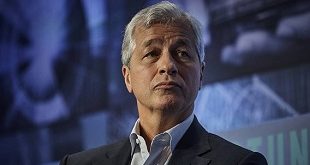
By Bob A. Kasango
Let us all know that injustice anywhere is ultimately injustice everywhere
In the January 31, 2009 issue of Newsweek magazine, Fareed Zakaria wrote about how in May 2006, a unit of American soldiers in Afghanistan’s Uruzgan valley were engulfed in a ferocious fire fight with the Taliban. Only after six hours, and supporting airstrikes, could they extricate themselves. What was most revealing about the battle was that many local farmers spontaneously joined in with the Taliban, some rushing home to get their weapons.

Asked later why they had done so, the villagers claimed they did not support the Taliban’s ideological agenda, nor were they particularly hostile to the Americans. But this battle was the most momentous thing that had happened in their valley for years, they said. If as virile young men they had stood by and just watched, they would have been dishonored in their communities. And, of course, if they were going to fight, they could not fight alongside the foreigners.
The villagers Zakaria describes had no grand transnational agenda, no dreams of global jihad. If anything, those young men were defending their local ways.
Zakaria wrote that reduced to its simplest level, the goal of American policy in Afghanistan should have been to stop creating what former Australian army colonel David Kilcullen in his book “The AccidentalGuerilla”, calls `accidental guerrillas’. It should have been making those villagers see U.S. forces as acting in their interests. That would have marked a fundamental turnaround.
On the night of April 14, I watched nighttime news and the pictures of the police battling and battering civilians made unsettling viewing. The beatings spread across Kampala and mainly in the less advantaged residential areas, otherwise known as slums.
Most of the victims were going about their business but human curiosity led many of them out of their dwellings to ogle at the “Walk to Work” enthusiasts. They must regret the moment they let idle curiosity cloud their reasoning. Some of the victims of the beatings were part of the “Walk to Work” march and a few of them were stone wielding and rowdy. But the majority was largely peaceful.
People watched sorrowfully as the police and army inflicted pain and humiliation on many peaceful civilians. Teargas canisters were fired inside houses to force the occupants out so they could be beaten. It did not matter that you were part of the protest or not, the police and army moved into the squalid shops and shanty dwellings and beat people senseless. Most people felt sorry for those victims who had to put up with the very forces that they pay to protect them but that now behaved like rabid animals against them.
People are tired of seeing and hearing about our police harbouring trigger-happy criminals in uniform. Margaret Ssekagya, a former Human Rights Commissioner in Uganda and now UN Human Rights Rapporteur, has made a call for accountability for the actions of these forces and many agree with her.
Every citizen expects the police to protect them. At the same time that we expect the police officers to put their lives on the line for us daily, there is that silent majority that just cannot put up with all this police brutality.

The irony of this all is that the majority of these people that were beaten feel the pinch of the economic hard times the most and toil the hardest just to keep those roofs over their heads and find a decent days’ meal. The epicenters of all the clashes were not in the upscale city suburbs of Kololo, Nakasero, Naguru or Bugolobi but in the low income areas of Kalerwe, Kisenyi, Kasangati, Katwe, Wakaligga.
Does that say something of their plight? Does the “walk-to-work” campaign resonate with them the most? Have they finally gotten someone to speak for them?
Most of these folks do not and cannot know why they were beaten, for in their minds, they were beaten because they dared say times are hard!
They do not see things from the government perspective that these “walks” could get out of control, no. They just see a brutal government that doesn’t care about them. Most of these people have been left behind and left out of the economic success of the past 20 years. They are hungry and angry and the beatings easily create guerillas against the state.
These things make people angry, and you don’t have to be pro or anti-government to be incensed at the actions of the police and army. The brutality of the police and army in the past week has attracted criticism even from the most unrelenting supporters of the use of force.
The man in charge now, Maj. Gen. Kale Kayihura must be between a rock and a hard surface. If he lets the “walks” go on, they could gain the undesired momentum and turn into something else. If he acts as he has done, he stops the “walks” but his men and women by their unbridled use of excessive force and brutality, create accidental guerillas.
Our police cannot be accused of being extraordinarily talented at crowd control. But what should they do? The police and army need to overhaul their reactions to these situations in two steps, each more complicated than the last.
Do counterinsurgency right. Despite Gen. Kayihura’s demonstrable but debatable success in this area, the police and army have to this point largely relied on more old-fashioned tactics—raids, search-and-destroy missions, arrests and prosecute immediately. Partly this is because the leadership of the police seems to be in a constant state of panic and suffer an acute paranoia of the very population they should be protecting. As a result, they do what they must do; not what is right. But it is also because many of these men and women in uniform have been trained to believe that they are chasing government saboteurs, “terrorists” who must be beaten, arrested and taken out of action urgently.
Instead of aggressive and punitive—in military parlance, “kinetic”—operations, Kayihura’s counterinsurgency approach should emphasise the need to make local populations feel secure. The police are meant to live among the people, use less force, gain trust, not overreact to every provocation and be seen as a positive force within the community.
Above all, the priority should be to get local leaders to work with the police in such situations, even when the job might not be done as well as by these local leaders. People trust the people they live with and listen to them.

Talk to the “enemy” The single most important consequence of the engagement is building trust. And engagement is not endorsement. Neither is it weakness. Soldiers were seen roughing up and beating civilians who could have just walked away from the scene of chaos by a polite but firm “advice” by that soldier. It has worked elsewhere and can and will work here. The challenge in Uganda is figuring out how to create conditions that enable reconciliation, recognising that deep wedges have been driven between the population and the armed forces especially the section of our population that is considered “hostile” to the government. Our forces have showed that they are better at creating enemies than friends.
Timing is important. Reconciliation becomes easier once you have gained a position of strength, having talked your “enemy” into submission. But the basic idea is obvious—to divide the enemy and thereby reduce the number of diehard opponents arrayed against you. The process of political bargaining goes on in every society during such conflicts. The goal for the police must be to separate, as often as possible, the outlaws and anarchists from the accidental guerrilla.
Critics might rage that this would be doing business with evil people. But in a country like Uganda — politics is often less about ideology and more about a sharing of the spoils. While some of those people that were beaten are anti-government and may be even extremists, others are concerned with gaining access to money and a better life.
In the run-up to the elections, the police went in early, occupied public places and engaged local leaders in their security plans, made their presence felt early and clearly. Their reasons for deployment were known and applauded. There may have been talk of “heavy deployment” but only a few thought it was a wrong thing, and that is the spirit in which they should continue.
The most important departure from the current thinking would be to make a distinction between an anarchist and a positive activist. Of all the tasks that Gen. Kayihura has, this one is the hardest. And yet, if the problem of police brutality cannot be solved, the war against perceived political hooliganism cannot be won.
The current economic stress is a complex problem, and progress will be slow and limited internationally. People’s personal economies are not doing well; almost all economic trends are moving in the wrong direction. But the country is not in an economic quagmire—yet. The government still has time to focus its goals, improve its public communication strategy, and more important, calibrate the use of force by our men and women in uniform.
It’s going to be long and hard and our patience with the government will be stretched at times. It will help immeasurably if our government, rather than react, acted better and quickly on these situations. The economic situation in Uganda is not just a local problem, it is a world phenomenon triggered by several factors. But the government should be proactive in explaining these things and sensitive in its actions. Communication has particularly been a problem and Kayihura has to deal with built-up anger after other government institutions have failed to explain and deal with these things in time.
It is not that the government does not have other goals—education, healthcare, etc. But many of them are objectives that will be realised over a long time, and are not best achieved by military force and brutality.
Some years back, Maj. Gen. (retired) Gregory Mugisha Muntu on a talk show with Radio One was asked why he had joined the bush war that brought Museveni to power. Muntu was from a staunch UPC background. His father, the late Mzee Muntuyera was one of President Obote’s closest confidants and in fact they lived in the same house in exile in Tanzania. In the Obote II regime Muntu was offered juicy jobs soon after university but he turned them down to join the struggle against the government of his father’s close ally. Muntu explained that he joined the struggle NOT because he personally was a victim of the brutality of the army then, but because he felt the pain of other Ugandans and he could not just sit by and watch. He became an accidental guerilla. Charles Onyango-Obbo, Muntu’s contemporary at university later wrote and said they were shocked by Muntu’s joining of the bush war. He said, “Muntu was peaceful, quiet and never showed any signs of great interest in politics”.
Let us all know that injustice anywhere is ultimately injustice everywhere.
*****
Kasango is a Kampala-based lawyer
 The Independent Uganda: You get the Truth we Pay the Price
The Independent Uganda: You get the Truth we Pay the Price


